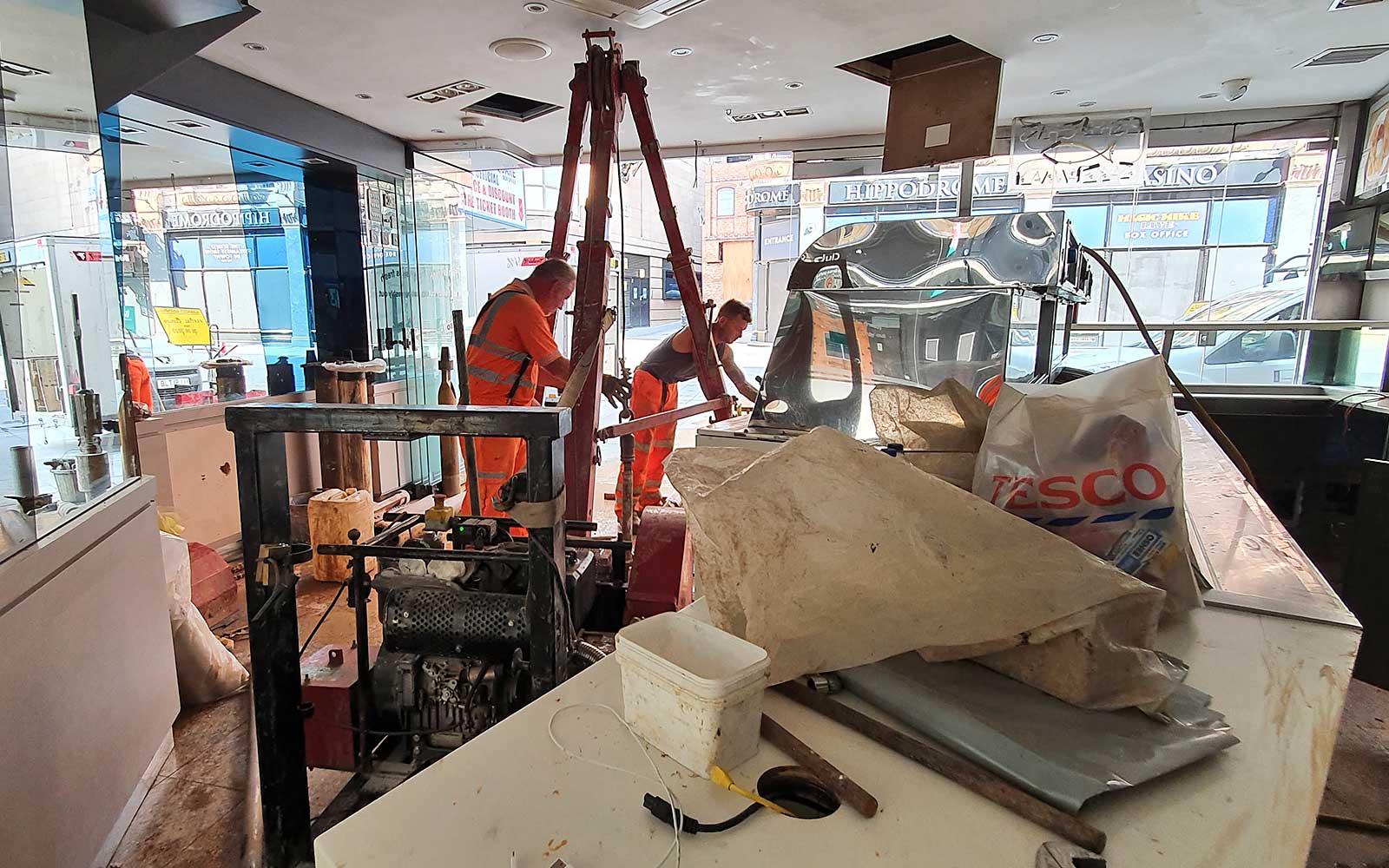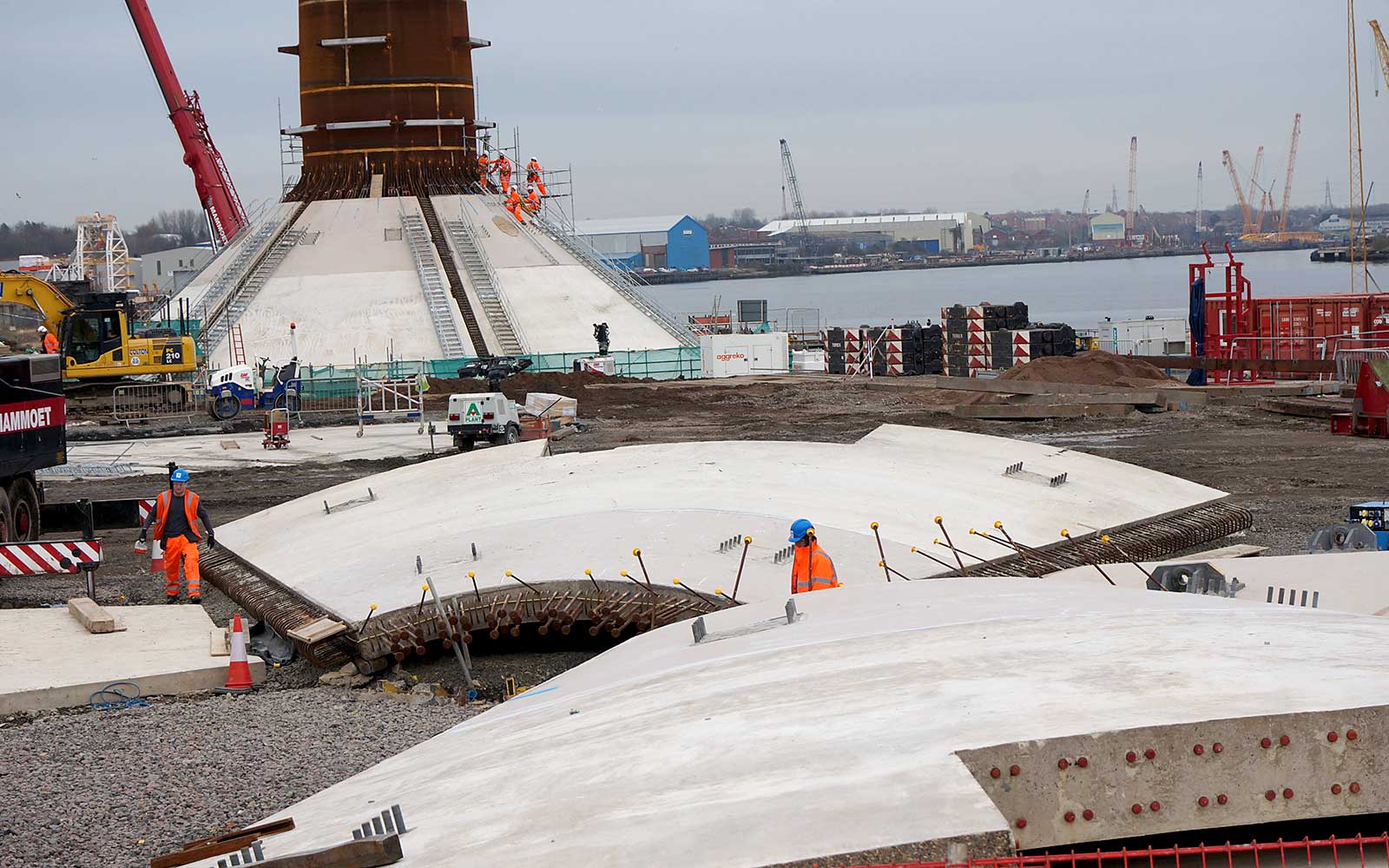Rebound Hammer
Rebound Hammer
Rebound hammers (also called Schmitt Hammers) are used to give an approximation of a concretes compressive strength by testing the surface hardness of the material. The testing apparatus usually involves a spring-loaded ball bearing which is ‘fired’ at the surface of the concrete and the height of the rebound of that ball bearing is logged. The height of the rebound gives an approximation of the material hardness from which the correlating approximate compressive strength can be derived.
While the rebound hammer can give instantaneous results, the veracity of those results are dependent on a number of factors. As the test is reliant on the relationship between surface hardness and compressive strength, factors that can affect the surface; carbonation, poorly finished surfaces, loose material, cracking, poorly distributed aggregate, surface aggregate, voiding, would all make rebound test readings suspect. As such, it is usually recommended that rebound tests are performed on young concrete and be corroborated with the laboratory testing of a core for compressive strength.
GBG investigates a wide range of structures from historically significant buildings to small private residences.
Complete the form below, call us on +44 1223 812 464 or contact us via email at works@gbg.co.uk. A member of the team will respond ASAP to discuss your requirements.
Please note: GBG Group is compliant with the General Data Protection Regulation (GDPR). To learn more about how we collect, keep, and process your private information in compliance with GDPR, please view our privacy policy. *






